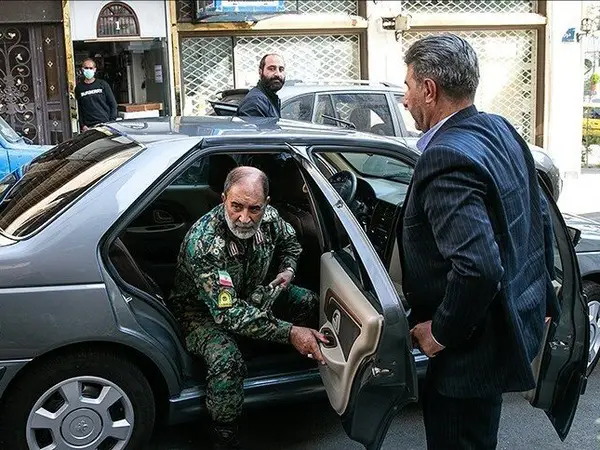The commander of the Iranian Police special units says his force is expanding its capabilities in preparation for tackling fresh protests.
General Hassan Karami told Entekhab News on March 25, that the special forces are preparing to simultaneously confront unrest at 400 locations.
The protests that started in September 2022 raged in more than 100 Iranian cities for over five months before they receded in February, although protests in some regions and chanting from rooftops still continue and pockets of street protests have also been observed.
In Zahedan, the capital of Sistan-Baluchistan Province protests have taken place every Friday since September. Hundreds have been reportedly killed or wounded during the protests over the past six months.
Gen. Karami called the ‘Woman, life, freedom’ protests “Super Sedition” and claimed that his forces have overcome the unrest “successfully.” Using military terms for treatment of civil disobedience, Karami said: “We have grounded the enemy and its human resources and media backing it and badly defeated them.”
Since the start of the protests Iranian officials including Supreme Leader Ali Khamenei and military commanders attributed the protests to “conspiracies” hatched by foreign powers and media.
The special force of the Iranian police was only one of the units the government used to suppress the protests. Karami characterized it as “A specialized force with unique capabilities.” He said: “We designed our operations based on the location and nature of threats.” Karami also boasted that most of the equipment used by the special forces are made in Iran.
During the protests, apart from improvised vans that were turned into anti-riot vehicles, all the weapons, including shotguns used to blind the protesters were imported from other countries.
Although Karami’s remarks reveal the Iranian regime fears a new round of nationwide protests in the spring, Interior Minister Ahmadi Vahid who is the highest-ranking officer in charge of the police said in remarks about the protests: “We had to face some problems and nuisance in the past year but we cannot say that it was a tough year.”
He said that the National Security Council under his supervision was tasked with dealing with the protest, and we accomplished this mission successfully.” Ironically, Vahidi did his best to avoid the word “protest” and referred to it as "this matter” or “the nuisance.” He also said that “It was a problem the Islamic Republic’s enemies had created.”
Vahidi said that the protests did not distract Iranian officials from focusing on what they needed to do for the country. What he said is in contrast with remarks by many Iranian politicians including members of the parliament who have been constantly criticizing the government for its inaction in the face of the country's most serious economic crisis in modern history and for failing to solve Iran's foreign policy problems.
During the past months, observers have warned the government that popular discontent persists "like a fire under the ashes" and that protests might erupt at any moment with small events that can ignite big upheavals. Even Khamenei's top military adviser former IRGC Commander Yahya Rahim Safavi has warned him that protests might reoccur if the officials do not stand by the promises they have made to the nation.
Other Iranian observers such as reformist commentator and political activist Hamid Reza Jalaeipour have warned that : "Iran has not yet entered a revolutionary situation, but if the current unrest continues, the country will move toward a revolutionary phase."
